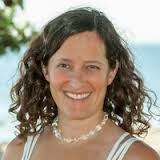Julie Emden

Chochma – Wisdom
Although deep wisdom teachings about the relationship between body and spirit exist in our tradition, many people do not know how to access them. What is unique about EJL is the way in which we are in relationship with text. We offer access points to the texts so that the words can live and breathe inside of each learner. “The Jewish teachings are conceptual and applicable, not lessons from the bima, but guidance in movement that are applied immediately. Here we can experience hesed (loving-kindness) inside of us and bring it out into the world from that place.”[2]
Kehillah – Community
All of our offerings take place in community. In our dance circles, small groups of women deepen their spiritual practice in community weekly during the Counting of the Omer for Sefirot Dance Circles or monthly for Rosh Hodesh: “I attend the circle…to welcome the month with intention and awareness, to build community with other Jewish women, to honor the Divine Feminine, and to move my body as a form of worship,”[3] In addition, we have a larger community of women who occasionally join us for one-time circles or retreats. “This retreat reminded me of the incredible value of kinship with women, in particular Jewish women, our shared experiences and upbringing, and the strength and support we can bring to one another.”[4]
Kedusha – Holiness
According to the Sefat Emet[5], the commandments (mitzvot) support us to live in integrity with others and ourselves in our day-to-day lives. They also serve the purpose of connecting our physical existence to inner divinity. Numerous mystical teachings exist citing the body as a holy vessel for the spirit. We are offering sacred spaces, containers of safety and intimacy, where we experience the holiness of embodied existence through the practices of physical movement imbued with conscious awareness. A young teen boy, after attending a 10-week Yoga, Art and Sacred Text series stated the impact of EJL in this succinct way: “I discovered that my body is holy.
Tzedek – Social Justice
While the values of chochma, kehillah and kedusha are employed in the moment-to-moment experience of the EJL approach, this work was first launched in peace camps for teenage girls from the Middle East to give them tools and resources to support them to engage in social justice work, tzedek, from a whole-being approach and a grounded, embodied place. The EJL approach supports activists to discover the ways in which Jewish wisdom and practices can offer support, so that they can sustain their acts of tzedek for the long haul.
Additional values that drive EJL specifically:
Mishkan – Embodied Spirituality
The mystics interpret instructions for the creation of the sacred tabernacle to refer to the fact that God lives within each of us, our bodies as temples: “Create for me a temple and I will dwell within you” (Asu li mik’dash v’sha∙chanti b-to∙cham).[6] Those who attend our sacred dance circles are spiritual seekers for whom conscious embodied practices, such as dance and yoga, are the gateway to experiencing spirit within. “I love to dance, it is my primary form of soul expression.”[7] Providing a space for embodied practices, infused with and framed by Jewish teachings, invites a new community of dancers and yogis to participate in Jewish spiritual life.
Yetzira – Creativity and Transformation
There are many spiritual seekers, both young and old, for whom creative expression offers the clearest and most accessible pathway to experiencing connection to divinity. Placing creative license and tools for discovery into the hands of the learner is one key to our success. Our methodology allows every person a way to discover their own unique connection to the wisdom teachings that are offered each session: “I leave with life-changing insights and transformations every single time.”[8] Our communities must include a space for those who value the creative process in their spiritual growth and transformation.
Shlemut – Wholeness
Relieving stress is a key motivating factor for so many when deciding how to spend their time outside of work and family commitments. Providing skills, tools and knowledge for cultivating grounded, calm responses to challenging situations in our lives is a significant contribution that our tradition can offer to spiritual seekers who look outside of Judaism for support on their spiritual journeys toward wholeness and well-being on all levels- mind, body, heart and spirit.
In reading Jewish Megatrends, I can trace the trajectory of my own Jewish journey from tribe to covenant to beyond and appreciate the chance to reflect upon the ways in which our Embodied Jewish Learning community is creating a chance for Jews and non-Jews alike to participate and benefit from the wisdom of our tradition.
_____________
Julie Emden directs the Embodied Jewish Learning Initiative at Jewish LearningWorks in San Francisco. A graduate of five fellowship and teaching certification programs related to her work as a Jewish educator, Iyengar-based yoga instructor (RYT-500) and movement/expressive artist, Julie has two decades of experience guiding others in exploring Jewish wisdom via the body.
[1] Anonymous
[2] Mara Langer, Yoga and Wholeness Classes, Peninsula JCC, Foster City, CA
[3] Reise Tanner, Sacred Dance Circles, Berkeley CA
[4] Shelley Kramer, Women’s Weekend Retreat at Westerbeke Ranch, Sonoma, CA
[5] Yehudah Aryeh Leib Alter of Gur Poland (1847 – 1905)
[6] Exodus 25:8.
[7] Betty Stone, Sefirot Dance Circles, Berkeley, CA
[8] Helen Alvarez, Rosh Hodesh Dance Circles, Berkeley, CA

